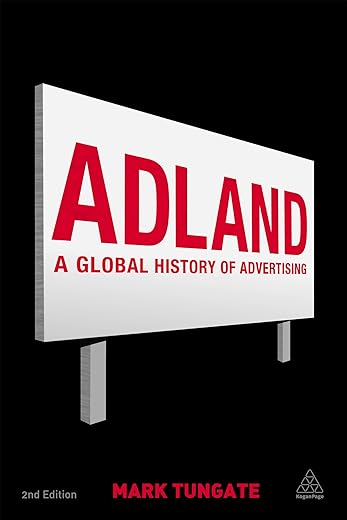Adland: A Global History of Advertising
£25.60
Adland is a ground-breaking examination of modern advertising, from its origins and evolution to the current advertising landscape. Bestselling author and journalist Mark Tungate examines key developments in advertising, from copy adverts, radio and television, to the opportunities afforded by the explosion of digital media and then interviews leading names in advertising today, including Jean-Marie Dru, Sir Alan Parker, Sir John Hegarty and Sir Martin Sorrell, as well as 20th century industry luminaries such as Phil Dusenberry and George Lois.
Exploring the roots of the advertising industry in New York and London, from Hopkins and Lasker to the Mad Men of the 50s, Tungate then covers today’s big communication groups and the emerging markets of Eastern Europe, Asia and Latin America. Adland offers a comprehensive examination of a global industry and suggests ways in which it is likely to develop in the future.
Read more
Additional information
| Publisher | 2nd edition (3 July 2013), Kogan page |
|---|---|
| Language | English |
| File size | 584 KB |
| Text-to-Speech | Enabled |
| Screen Reader | Supported |
| Enhanced typesetting | Enabled |
| X-Ray | Not Enabled |
| Word Wise | Enabled |
| Sticky notes | On Kindle Scribe |
| Print length | 272 pages |
| Page numbers source ISBN | 0749464313 |










by cluefunk
post ivies:
1. this is a very readable book that tells a fairly popularised history of advertising.
2. tungate has interviewed some industry leaders.
negatives:
1. it leans heavily on fox’s ‘the mirror makers’ and anecdotal accounts by some of the famous industry players but the book ignores the field of marketing history in which researchers have started to unpick some of the myths and industry legends which tungate reproduces.
2. as it progresses it starts to read like a series of wiki entries on famous ad men and women and ad companies. the main difference being wiki pages often have citations! the only source tun gate cites are webpages and interview he conducted. but he takes lots from other places (such as autobiographies) without acknowledging where he gets the stories and information.